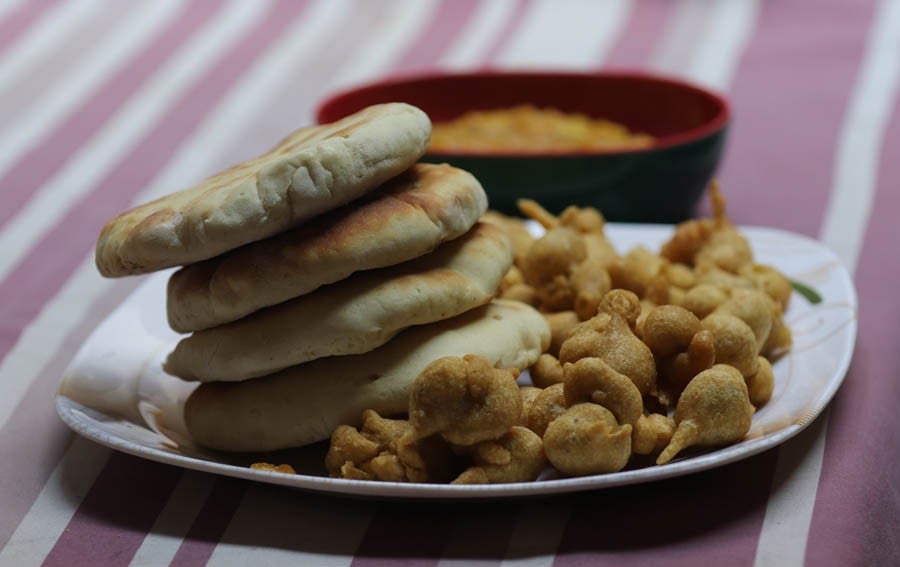
Das Kulcha is a local delicacy which has been consumed in breakfast for many centuries

An hour before sunrise, the Old City of Lahore is abuzz with the morning call for prayers from the numerous mosques within its walled boundaries. The streets are still isolated but a few people can be seen scurrying towards a shop located in Chauhatta Mufti Bakar Chowk, near Masjid Wazir Khan. This maze of narrow, winding streets, houses with numerous windows and wide balconies, clings to many secrets. The shop selling Das Kulcha being one of them.
A local delicacy, Das Kulcha has been consumed in breakfast for over many centuries now. It is said that during the Mughal times, when the identity of the residents of the city was beyond any religion or community, a person named Ram Das came up with a recipe for a kind of bread which later on became part of the cultural identity of the city.
The Das Kulcha, a pure vegetarian breakfast food, also known to be beneficial for your gut health, was once found in every nook and cranny of the Old City. But during Partition, majority of the bakers who specialised in it left Lahore to settle across the border, leaving behind only a handful of bakers of the bread. Today, only the shop located at Chauhatta Mufti Bakar Chowk is holding on to one of the last shreds of history.
While people say their morning prayers, the workers at the shop fire up the oven and start off with the preparation of the Kulcha. It begins early in the morning when a special vegetarian broth is prepared by boiling chickpea pulse and fennel seeds separately for kneading the flour.
The earthen pots used to fermenting the chickpeas and fennel seeds are placed aside until the fermentation process is complete. Later, a secret recipe (believed to be the original recipe of Ram Das) is added to the broth before kneading the dough and baking the bread in oven.
At around 8 in the morning, the first batch of Das Kulchas is wheeled down to the shop where the customers are waiting. The shop not only caters to the needs of the customers who visit the shop but also sends out batches of the Kulcha to other parts of the Old City via vendors who sell this delicacy roaming around on a bicycle. Within three hours the shop has sold out all Kulchas prepared for the day.
In recent years, money woes and a changing food culture have pushed this classic delicacy to the wayside. Eating habits are also evolving: in place of drawn-out meals in the morning, the people are opting for instant foods. The centrality of food once enjoyed by Das Kulcha is an expression of cultural identity, history, and memory of Lahore. Unfortunately, it was a lifestyle that could not withstand the push of time.
At some point in time, the image of Lahore was what its residents ate. Today, what they ate is slowly disappearing. Das Kulcha remains worthy of preservation as any of the city’s other rich cultural offerings which can be discovered with a leisurely walk in the old town.